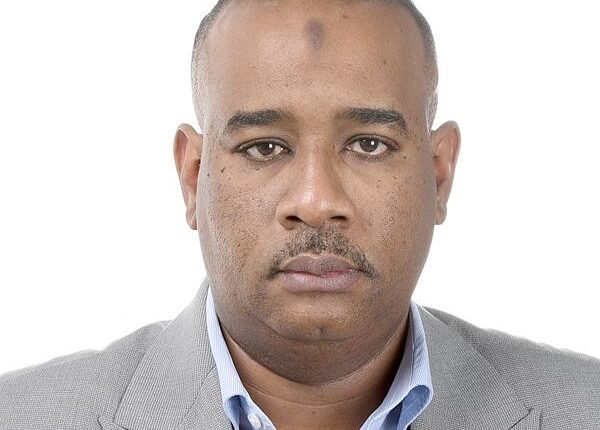When Political Propaganda Converts into Vicious Enmity

By Muhanad Awad Mahmoud
At a time, concepts are confused and rebellion is being marketed as ‘’endeavors for peace’’, and when the militias become political partners thanks to foreign face-lifting procedures, we are presented with troubled writings that try to reproduce illusion in revolutionary language and present complicity in the cloak of initiatives.
But the most dangerous thing Sudan faces today is not just the bullets and security chaos, but rather this soft political lineup that works to re-define enemy and ally, blanching war crimes under the guise of ‘civil representation,’ and seeking legitimacy from abroad in a scene that reflects a complete break with the concepts of national sovereignty and the will of the people.
Perhaps what recently occurred with the visit of the ‘Sumud’ delegation to South Africa, and the subsequent media attempts to portray the meeting with President Cyril Ramaphosa as a ‘diplomatic victory,’ raises fundamental questions about the meaning of legitimacy, the limits of honorable political practice, and when the defense of civilians turns into a cover for an alliance with criminal militias. Legitimacy, in its deepest meanings, is not obtained from outside, nor is it extracted through presidential handshakes or ceremonial meetings. Legitimacy is derived from within, from the will of the people, from popular mandate, from a genuine moral and political presence in the heart of the national scene, not from hotel lobbies, nor from colorful pictures distributed to social media to serves as deceptive ploy for the masses into believing that ‘the world recognizes us.’ How many opposition delegations have visited developed countries and stood before their leaders without that being a quest for legitimacy or an affront to state institutions? Sometimes it was an implicit recognition of potential power or a glimpse into a future condition. Perhaps the Sudanese experience itself has enough examples to dispel the illusion of seeking legitimacy.
In 1986, a delegation from the National Islamic Front, led by the late Dr. Hassan al-Turabi, visited China, even though the front was in opposition at the time. It did not carry any constitutional legitimacy, but it had an effective organization and a political vision. Beijing, as a pragmatic state, saw it as a rising power and opened early channels of communication. Indeed, when the Salvation came to power, China was one of its first supporters, entering Africa through Khartoum.
Sudan had previously hosted the Eritrean opposition led by Isaias Afwerki (Eritrean Liberation Front), the Ethiopian opposition led by Meles Zenawi (Popular Revolutionary Democratic Front), and the Chadian opposition led by Idriss Déby (National Salvation Movement). All were opposition forces, but they received political support from Khartoum and later took power in their respective countries. Did that Sudanese support imply “recognition of the legitimacy” of those movements? No. It was a calculated political stance.
Just as states have the right to support or host whom they wished, Sudan also has the right to express its rejection, to withhold support, or to reassess its relationships when political forces associated with militias that commit murder, looting, and rape on its territory are welcomed.
As for the “Sumud-Resistance” alliance, which is unashamed to present itself as a “civilian alliance striving for peace,” it chose to fully align with the Rapid Support Forces and has not issued a single statement condemning what has happened. There was not a single statement condemning what happened in El Fashir, or what happened in the city of Wad Madani, Khartoum, Al Gezira or El Geneina. Rather, it has been observing a blatant silence, which completely meets with the militia’s project, and serves its goals of recycling itself politically through a civilian façade.
Whoever failed to condemn, is actually participating. It is silent, justified. Whoever is complicit has no right to talk about the revolution, nor to represent the aspirations of the people who came out in December against the logic of weapons, not to replace one military with another, but to build a homeland.
Making it even more ironic, some media mouthpieces attempt to portray Sudan’s Foreign Ministry statement—which did not explicitly refer to South Africa or the Sumud delegation—as “political malice” or “diplomatic jealousy.”
In fact, the FM statement has clearly set a warning for African countries against dealing with political entities linked to the militia, a completely legitimate position that only reflects the Sudanese state’s keenness to defend its sovereignty and its refusal to grant political cover to those who practice terrorism and threaten its national unity. Moreover, the articles written after the visit were the ones that exposed their authors, and revealed the identity of the intended coalition in the statement, when they rushed with apparent tension to justify the visit, and crying over While the truth is that they simply failed to pass through the gate of genuine legitimacy, they resorted to the behind the scene theatrical inlets, and to diplomatic metaphor, to gain an undeserving platform
Today, Sudan is engaged in a battle for sovereignty, and a battle for awareness. It is in urgent need of a clear distinction: those who stand with the militia, even in soft language, are not civilians. Those who claim to be seeking peace while justifying atrocities are not honest.
Those who seek legitimacy from abroad have lost their legitimacy at home. Whoever desires status must come through the people’s gate. Whoever asks for legitimacy must present a project. Whoever wears the mantle of revolution must protect it from being stained by the hands of the militias.
Legitimacy cannot be bought through a meeting, nor acquired through a photo, nor won by a rhetorical speech on an international platform. Legitimacy is a stance, a project, a mother’s tear, the voice of a martyr, and the cry of an injured person. Those rejected by the people at home, shall not regain people’s hearts via the foreign capitals of the continent.
Shortlink: https://sudanhorizon.com/?p=6216

